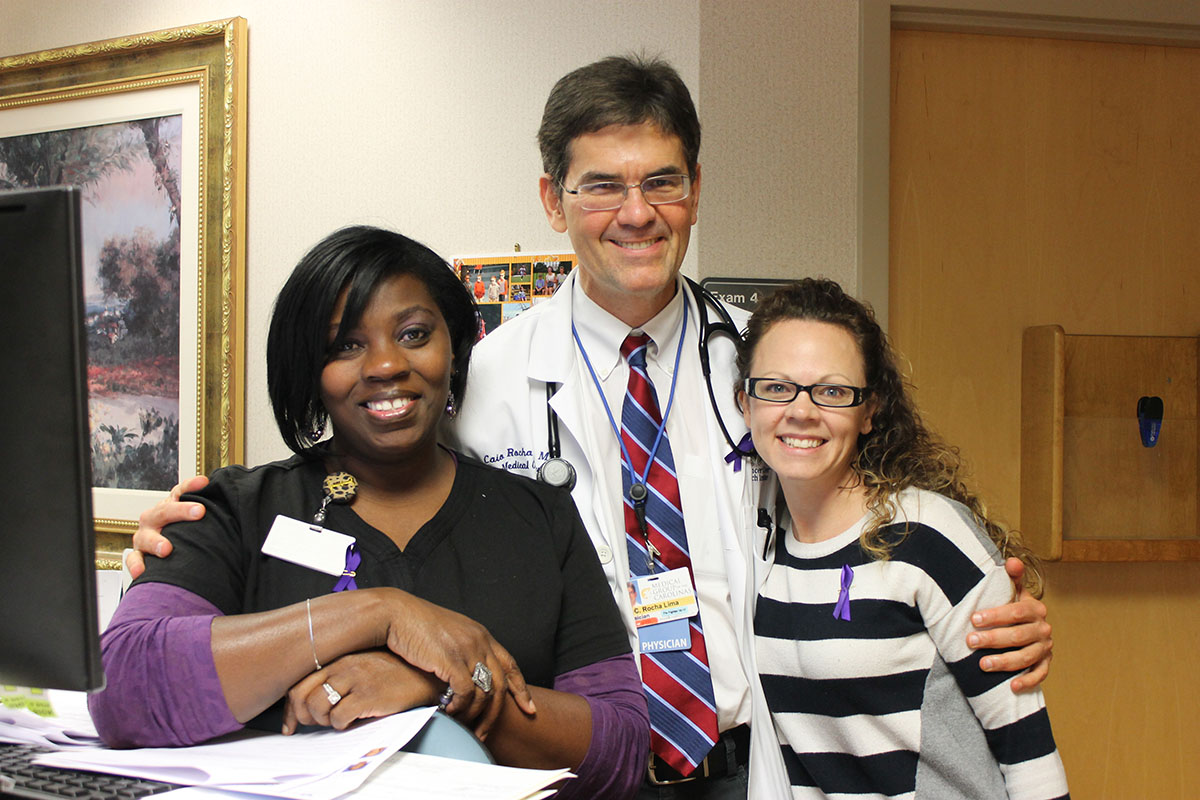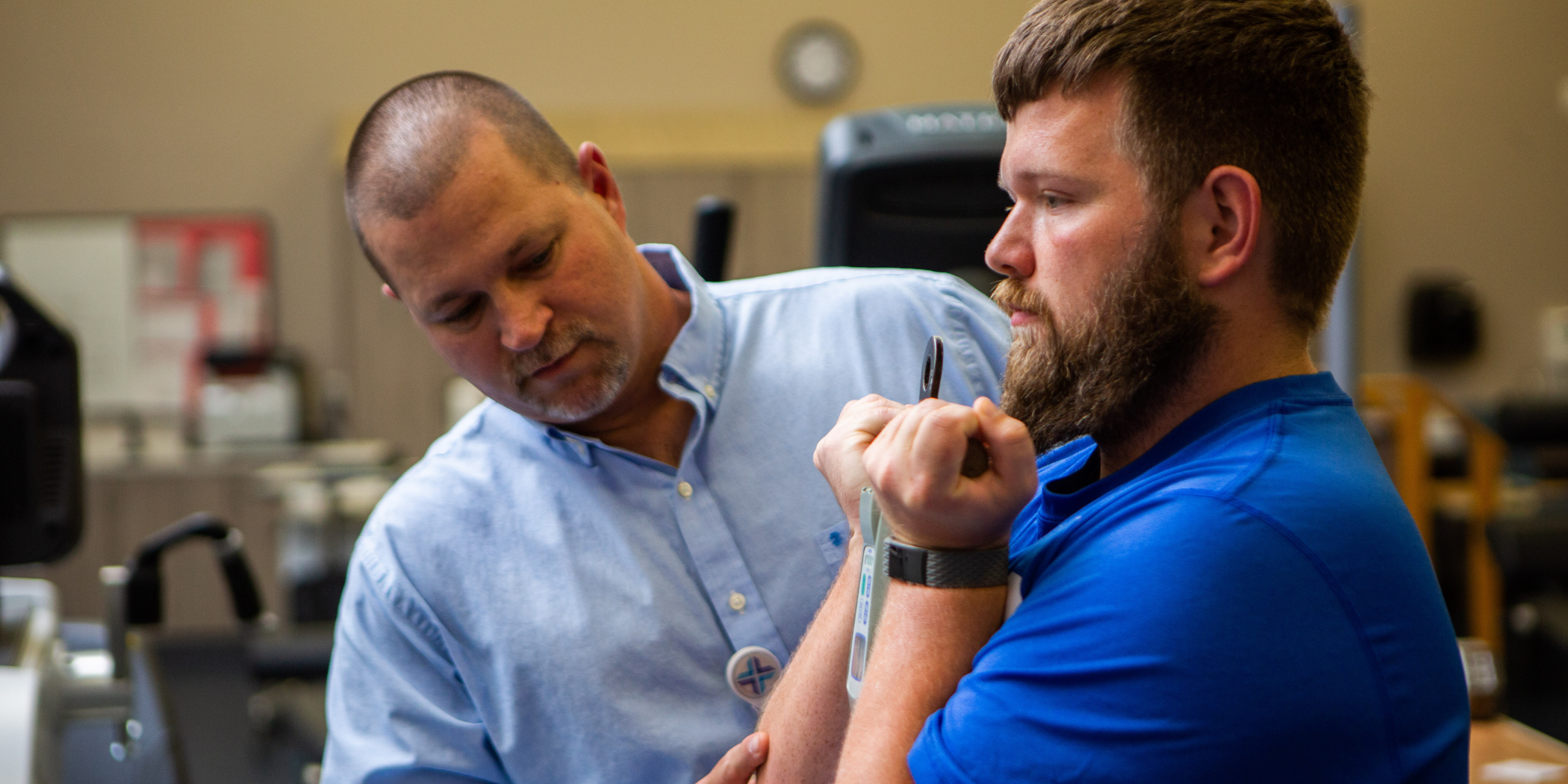
Giving a voice to a silent cancer
(Pictured above: Amanda Blanton, NP; Caio Rocha Lima, MD; Indrea Jackson, CMA)
They call it a silent cancer, but clinicians and survivors raise their voices to educate others about the disease on World Pancreatic Cancer Awareness Day, observed on Nov. 17.
Early stages of pancreatic cancer often do not present any signs or symptoms. By the time a patient has symptoms, the cancer is in its latest stages and has spread outside the pancreas.
“Pancreatic cancer is one of the deadliest cancers,” said Caio Rocha Lima, MD, medical director of oncology for Gibbs Cancer Center & Research Institute. “The main reason for this is that it is diagnosed in the late stages. It's a silent disease for most, so when a patient has a symptom it's usually late and the cancer has already started spreading to the other organs.”
When symptoms appear, they usually include:
- Pain in belly or back
- Jaundice — Yellowing of your skin and the whites of your eyes
- Loss of appetite
- Unexplained weight loss
- Depression
- Change in stool
So far in 2016, approximately 53,000 people in the United States have been diagnosed with pancreatic cancer, according to the American Cancer Society.
“Progress has been made with disease, but we still don't have a cure,” Dr. Rocha Lima said. “In the past, we couldn't define if chemotherapy would improve the outcome of pancreatic cancer. Now, not only are we observing survival with chemotherapy, but also we have observed an improvement in quality of life in patients who have been treated for metastatic pancreatic cancer.”
There are several risk factors that contribute to a pancreatic cancer diagnosis:
- Family history: If someone in your family has had pancreatic cancer, the risk of the disease increases.
- Diabetes: Pancreatic cancer is more likely to occur in those who have lived with diabetes for five or more years.
- Pancreatitis: People with chronic pancreatitis have an increased risk of developing pancreatic cancer.
- Smoking: Smoking increases the risk of pancreatic cancer by 30 percent.
- Race: African-Americans are at a higher risk for developing pancreatic cancer.
- Age: Most people diagnosed with pancreatic cancer are over the age of 60.
- Gender: A slightly higher number of men are diagnosed with pancreatic cancer than women.
- Obesity: Individuals identified as obese have a 20 percent increased risk of developing the disease.
“Thirty percent of pancreatic cancer is linked to cigarette smoking,” Dr. Rocha Lima said. “About five percent of pancreatic cancer is related to heredity. High fat diets can also increase the risk.”
But there are also three ways you can lower your risk:
- Stop smoking. If you smoke, stop. Talk to your doctor about how to stop smoking, such as joining support groups, medications you could take, or trying nicotine replacement therapy.
- Maintain a healthy weight. Work to stay at a healthy weight. If you feel you need to lose weight, work to exercise daily and include vegetables, fruit and whole grains with smaller portions in your meals throughout the day.
- Choose a healthy diet. A diet full of colorful fruits and vegetables and whole grains may help reduce your risk of cancer.
See your physician if you have been experiencing any symptoms. If you don't have a physician, find one at SpartanburgRegional.com.











